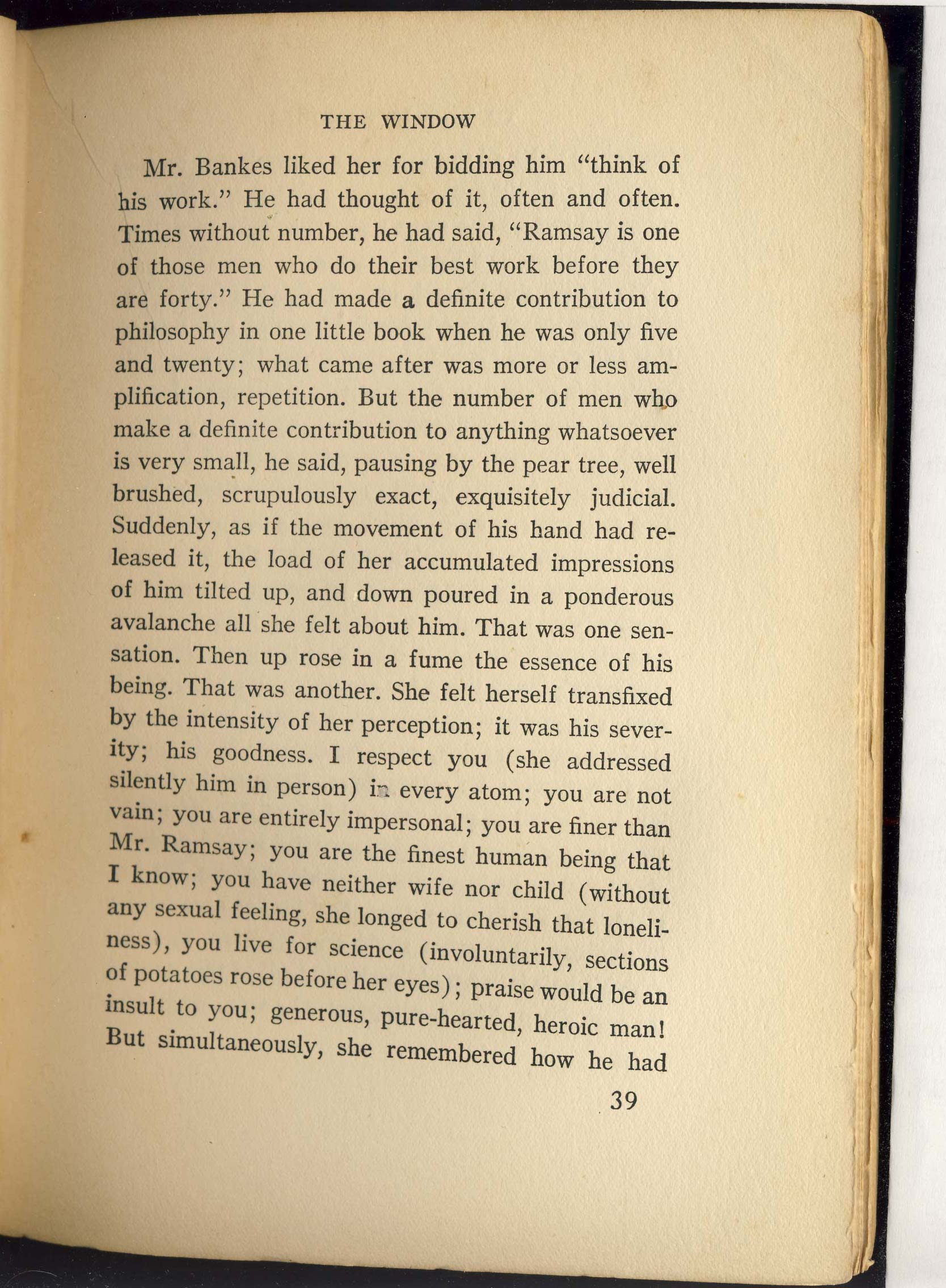Slide to View Image: Opacity 0%

THE WINDOWMr. Bankes liked her for bidding him “think ofhis work." He had thought of it, often and often.Times without number, he had said, "Ramsay is oneof those men who do their best work before theyare forty." He had made a definite contribution tophilosophy in one little book when he was only fiveand twenty; what came after was more or less am-plification, repetition. But the number of men whomake a definite contribution to anything whatsoeveris very small, he said, pausing by the pear tree, wellbrushed, scrupulously exact, exquisitely judicial.Suddenly, as if the movement of his hand had re-leased it, the load of her accumulated impressionsof him tilted up, and down poured in a ponderousavalanche all she felt about him. That was one sen-sation. Then up rose in a fume the essence of hisbeing. That was another. She felt herself transfixedby the intensity of her perception; it was his sever-ity; his goodness. I respect you (she addressedsilently him in person) in every atom; you are notvain; you are entirely impersonal; you are finer thanMr. Ramsay; you are the finest human being thatI know; you have neither wife nor child (withoutany sexual feeling, she longed to cherish that loneli-ness), you live for science (involuntarily, sectionsof potatoes rose before her eyes); praise would be aninsult to you; generous, pure-hearted, heroic man!But simultaneously, she remembered how he had39









